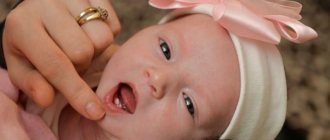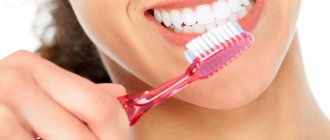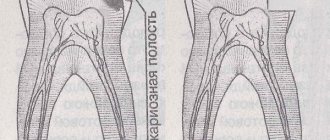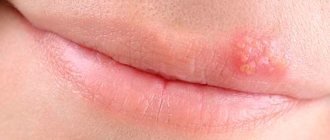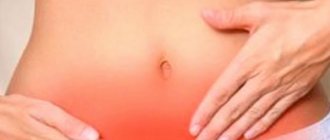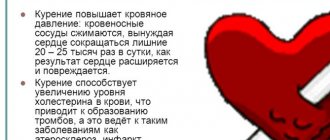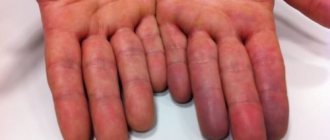Bruxism - what causes teeth grinding
Teeth grinding occurs in 8-31% of the population. It appears in two forms: nocturnal , that is, one that occurs at night, and after awakening , that is, one that appears during the day. Bruxism can be the result of psychological factors or genetic disorders, malocclusion or medications.
Teeth grinding can lead to tooth sensitivity, sore facial muscles, or severe headaches, which is why proper treatment and breaking a few habits is so important.
Bruxism in adults
Bruxism also occurs in adults, and the disease appears in both sexes with equal frequency.
Causes of Bruxism
The question of why teeth grind in their sleep remains open: the exact reasons have not been established. Various factors can lead to the disease:
- psychological: fatigue, stress, depression, anxiety neurosis, complexes, a special type of personality (vulnerable or hyperactive nature);
- neurological: epilepsy, cervical osteochondrosis, lesions of the trigeminal nerve, apnea, somnambulism (sleepwalking), nightmares;
- dental: malocclusion, jaw defects (over-row teeth, their absence or incorrect location), joint pathology, uncomfortable braces or dentures, incorrectly installed fillings, etc.;
- hereditary factor;
- other factors (not recognized by all doctors): acid reflux into the esophagus, helminths, snoring, impaired nasal breathing (enlarged adenoids, frequent rhinitis or deviated septum in the nose), lack of vitamins.
In 70% of cases, teeth grinding is the result of psychological problems.
Reduce your stress levels
Stress is a common cause of bruxism—if you're stressed during the day, you may also have trouble sleeping.
First, think about what causes stress in your life (people, things and events), and then come up with an effective plan to limit their presence in your life.
Consider meditation, exercise, or seeing a professional to help you cope with stress. Work on your daily schedule and try to always go to bed and wake up at the same time .
Don't forget about a healthy diet - fast food, carbonated drinks and sweets cause tooth decay! Fruits, vegetables, nuts and berries are good for the whole body, including teeth.
The cold makes my teeth hurt! What to do?
After giving birth, my teeth react painfully to cold and hot, and my gums bleed when brushing. I waited for almost a year, hoping that everything would go away on its own when the supply of calcium in the body was restored. Maybe I shouldn’t wait, go to the dentist? Alena.
Alexey PETROV, dentist:
“You seem to still have the early stages of tooth sensitivity.” Then they may begin to “notice” other stimuli. Every snack will be an inconvenience. Teeth will begin to react not only to cold and hot, but also to salty, sour, and spicy.
It’s definitely not worth delaying a visit to the dentist. Of course, pregnancy played a role. Apparently, due to the loss of calcium, a serious defect developed. Hypertension (tooth sensitivity) can be caused by tooth decay, tooth decay, and gum disease.
In addition to eliminating the main problem, dentists usually recommend fluoridation of teeth. Don't be afraid - this procedure is completely painless. For example, they are now doing modern deep fluoridation using very thin, one might say, nanofluorine.
In addition, your dentist should recommend special oral care for you. You should definitely check whether you are brushing your teeth correctly.
Over the years, a person develops his own algorithm for working with a brush, which is repeated day after day. And it’s not a fact that all places in the mouth are cleaned! If you forget to walk somewhere, bacteria will finish off your already sensitive teeth.
There are inexpensive Dinal tablets that are used to teach proper cleaning. You dissolve it and the remaining untouched areas will turn pink. The tablet stains soft plaque. You will immediately see where you need to work with the brush.
By the way, you also need a special brush, with soft bristles, for sensitive teeth. And a special paste with a minimum of abrasives.
CALCIUM ABSORPTION IS INTERFERRED BY... SAUSAGE
I take vitamins with calcium, but my teeth enamel still cracks. Maybe I can’t digest it? Andrey.
Natalya KRYLOVA, pharmacist:
— Calcium is a very capricious element. For example, our body prefers to work only in the company of vitamin D, and does not like coffee (one cup of 150 ml inhibits the absorption of calcium for 3 hours). It is also not digested along with bread, bran and all refined foods.
Salt and food additives contained in sausages impair its absorption in the body.
There is a lot of calcium in spinach, rhubarb, and sorrel, but it is practically not extracted from there due to oxalic acid (it converts calcium into an insoluble compound).
Starch and fiber also interfere with calcium absorption. Therefore, it is healthier to eat dairy products separately from cereals and vegetables.
And vitamin D is not so picky - it is well absorbed from meat, cod liver, fatty fish (herring, halibut, salmon), along with phosphorus - from canned fish (especially sprat and sardines).
Stop chewing on inedible things
Many adults chew on a pencil or pen , which increases oral bacteria and disrupts normal oral activity . This habit is directly related to bruxism, and uncontrolled chewing of objects is a common result of stress.
If you can't stop chewing things, trick your brain with gum or a small, healthy snack.
Complications and consequences
Teeth chattering in your sleep is a negative phenomenon that wakes up not only loved ones at night, but also harms the person himself. Constant pressure causes teeth to suffer. They become shaky and fall out gradually, the enamel wears off and constant pain occurs.
Bruxism negatively affects those who wear orthotics. The teeth experience double pressure from the structure itself and from the pressure. In addition, the grinding noise causes rapid wear of the structure.
Bruxism can lead to stress, depression and fatigue.
If your teeth hurt from cold and wind, then timely treatment is required. In its absence, pulpitis appears - inflammation of the pulp (internal tissue of the tooth). As the infection develops, flux appears. It is also possible to develop periodontitis - inflammation of the soft tissues that are adjacent to the upper part of the tooth root.
An infection also develops in the tooth, and this causes complications on the internal organs: pathogenic microorganisms are spread throughout the body with the blood. As a result, a vulnerable organ suffers: it could be the bladder, ovaries, lungs or heart. Therefore, even if the pain has disappeared, treatment is still needed.
Another complication of an untreated tooth is phlegmon. This term refers to purulent inflammation of deep tissues, which leads to tissue necrosis. Due to untreated hypothermia of the trigeminal nerve, paresis or paralysis develops. Advanced neuritis causes a chronic condition in which nothing helps.
Avoid coffee and alcohol
It is very important to pay attention to improving your diet . What we eat and drink affects every aspect of our well-being and health, and our teeth are no exception.
Caffeine is a well-known stimulant that we take when we are sleepy and tired. However, if you have problems with bruxism, you should limit coffee, energy drinks and colas because they contain too much caffeine. Its excess increases activity during the day, but in the evening you will have trouble relaxing.
The same goes for alcohol . It can make you fall asleep faster, but it can also make your sleep restless and shallow. As a result, teeth grinding will become even more severe.
Why does a person chatter his teeth?
If your teeth chatter when you are cold or scared, this is completely normal. When it's cold, these contractions cause increased blood circulation, which produces more heat to keep the person from freezing.
This type of heat-generating mechanisms functions better in adults than in children, which is why children freeze faster than adults. Also, when you are scared, adrenaline is pumped into the blood in large quantities to prepare the body for upcoming stress, both emotional and physical. These are “normal” causes of teeth chattering.
In other cases, teeth chattering is not caused by natural factors. Basically, it is called:
- overwork and mental imbalance;
- nervousness and stress;
- lack of magnesium;
- bruxism.
Also, in some cases, this is a bad habit developed by a person during boring activities.
There is an opinion that chattering and grinding of teeth can be indirect symptoms of certain diseases of the heart and digestive system.
Try using mouthguards
If you think you can't cope with your teeth grinding problem, it's best to see a doctor! If you visit your dentist regularly, he should notice the difference in the condition of your teeth and suggest appropriate treatment. Most likely, he will offer you a special onlay that will protect your teeth from grinding.
You can buy such a mouthguard at a pharmacy or order one specially adapted to your jaw. Of course, the second option is better, but much more expensive, although it’s worth deciding on it, since it will last for many months.
How to get rid of the problem?
Do not forget that daytime teeth grinding is a problem that can be eliminated through willpower. One of the most effective methods of treatment is psychotherapy, which is aimed at identifying conflict and stressful situations, understanding them and developing the ability to effectively overcome life's difficulties.
In cases where this pathology is caused by bite defects, the patient undergoes orthodontic treatment without fail.
Quite often, people suffering from this disease are recommended to use a bioplastic mouth guard, which during an attack protects the jaw from the effects of negative factors of bruxism. A dental onlay is made in accordance with the individual characteristics of a person’s jaw structure and helps to avoid grinding during sleep, prevents the abrasion of tooth enamel, protects teeth from displacement and reduces jaw tension. Wearing a mouthguard does not help eliminate the pathology; it only helps not to aggravate the situation and prevent negative consequences for the patient’s health.
If the above methods do not help, or when the disease progresses rapidly, the patient is referred to an oral and maxillofacial surgeon. The doctor installs a special splint for up to 14 days or applies Botox injections to help relax the jaw muscles.
In addition, a patient whose jaw is chattering should take B vitamins and supplements with magnesium and calcium. Do not forget that self-medication is unacceptable, and all medications are used only as prescribed by the attending physician.
